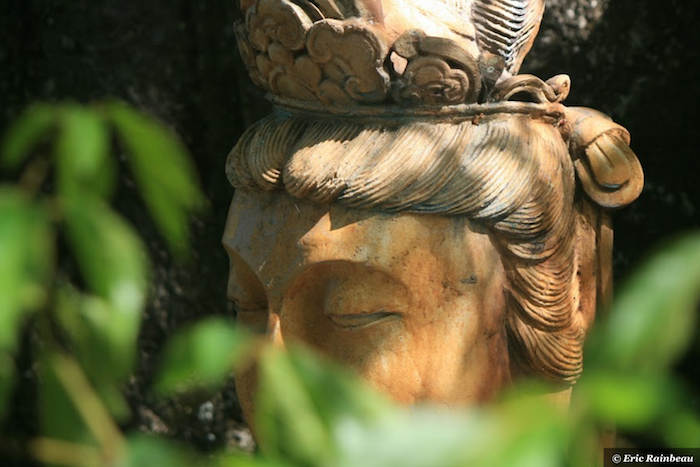I will never forget the first time I forgave myself…
The moment I really let myself back into my own heart after years of shame, years of desperately trying to be the person I thought I was supposed to be, years of numbing myself to the pain of self hatred.
I was sitting in bumper to bumper traffic, listening to Stephen Levine’s gravelly voice from a taped workshop on the Yoga of Relationship, talking about forgiveness and the merciless mind. I closed my eyes, breathed into my heart, and softened.
I softened to me.
I saw me, perhaps for the first time, through the eyes of love.
As my eyes opened, swimming with tears, and the sunlight split into a thousand swords of brilliance that momentarily carved away the highway before me and all its shiny cars, I saw clearly how the impersonal mechanics of my conditioning shaped so many of my life’s disasters. That despite how easily I could imagine otherwise, none of the past could actually be other than it was. And that none of my mistakes disqualified me from a worthiness of my own love. My life was forever changed in that moment.
The medicine of forgiveness is so often misunderstood. It never condones tragic or harmful behavior. It never says “what you did was okay.” It just honestly acknowledges the humanity and fragility of the person who authored such behavior.
Forgiveness is not so much a gift to the one forgiven but to the one forgiving, though it can be quite healing for both parties. It is an unclouded seeing of the truth: That we are all capable of causing pain and harm, whether consciously or unconsciously; that we are all capable of acting out the unhealed traumas of the past to carry inherited patterns of suffering forward.
Forgiveness softens the calcification surrounding the heart, ending the suffering that comes with holding ourselves or another outside the circle of our love and compassion.
By forgiving you for your tragic mistakes, I set myself free. With every merciful breath I release toxic emotional buildup from my own cells.
Forgiveness is an act of reclaiming our power to love. To live with an open heart that is not dictated by the actions of another.
Forgiveness ends the argument with what is. By disentangling our lives from the wasted energy and futility of needing anyone to be different than they are in order to feel okay ourselves, we free up tremendous resources to serve our deepest purpose.
Forgiving does not mean we trust or feel safe in the presence of the person we have forgiven. Nor that we want to spend time with them! It just means we refuse to blind ourselves to their humanity or suffer the consequences of blame and resentment for a moment longer.
It is entirely possible that after forgiving someone, you will choose to have no contact with them indefinitely.
Forgiveness is a revolutionary act. It is an affirmation of the possibility of restoration and healing in a culture of incrimination and punishment.
Sometimes we are not ready to forgive. It cannot be rushed into.
Sometimes forgiving too soon can be one more way we are dishonoring our own authentic outrage. Another merciless, “spiritualized” devaluing of ourselves, or a tragic attempt to avoid the discomfort of our anger and resentment.
That said, the presence of some resistance to the process of forgiveness is not necessarily an indication that you are not ready.
Vulnerability is inevitable in authentic forgiveness. Therein lies the empowerment. The power of an undefended heart.
Paradoxically, we often discover great benefit in forgiving those we might not have a “reasonable” occasion to forgive, like our young children who often do not meet our expectations, or those who have “abandoned” us by dying or going away.
Forgiveness is a skill. One that, like any other, grows easier and stronger with practice. It will change your life if you let it.
You can try it right now by turning toward the person who most needs your compassion: You.
Take a breath into your heart. Make a little room there for you. Call your soul home to this warm sanctuary. Embrace you. Soften your shoulders. Breathe again. Say to yourself, “I forgive you. Dear soul, I forgive you for the pain you have caused yourself and others, consciously and unconsciously. I release you from the burden of my shame and resentment. I accept you in my heart, just as you are. Yes, dear one, just as you are. I forgive you.”
It is never too late to forgive.
And almost never too soon.
Relephant favorite:
7 Truths About Forgiveness.
~
Author: Joshua Hathaway
Editor: Travis May
Images: Eric Rainbeau/Pixoto







Read 1 comment and reply